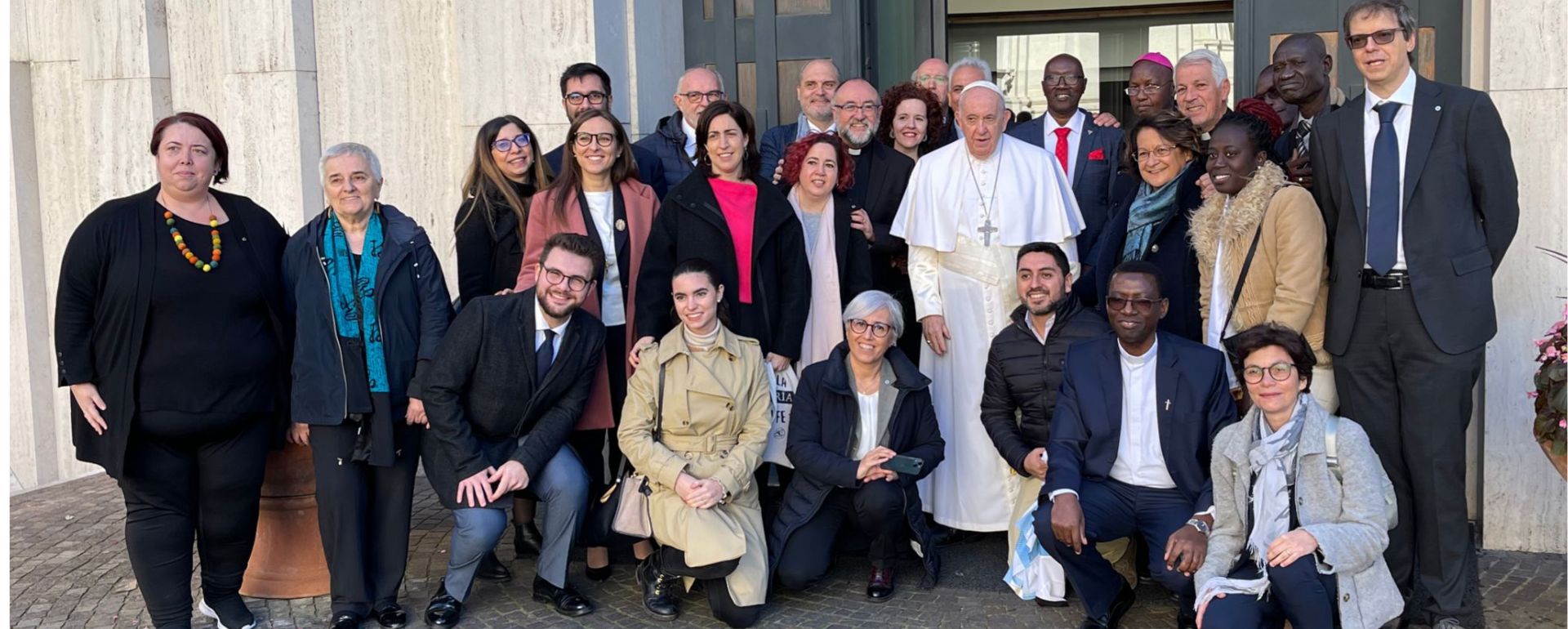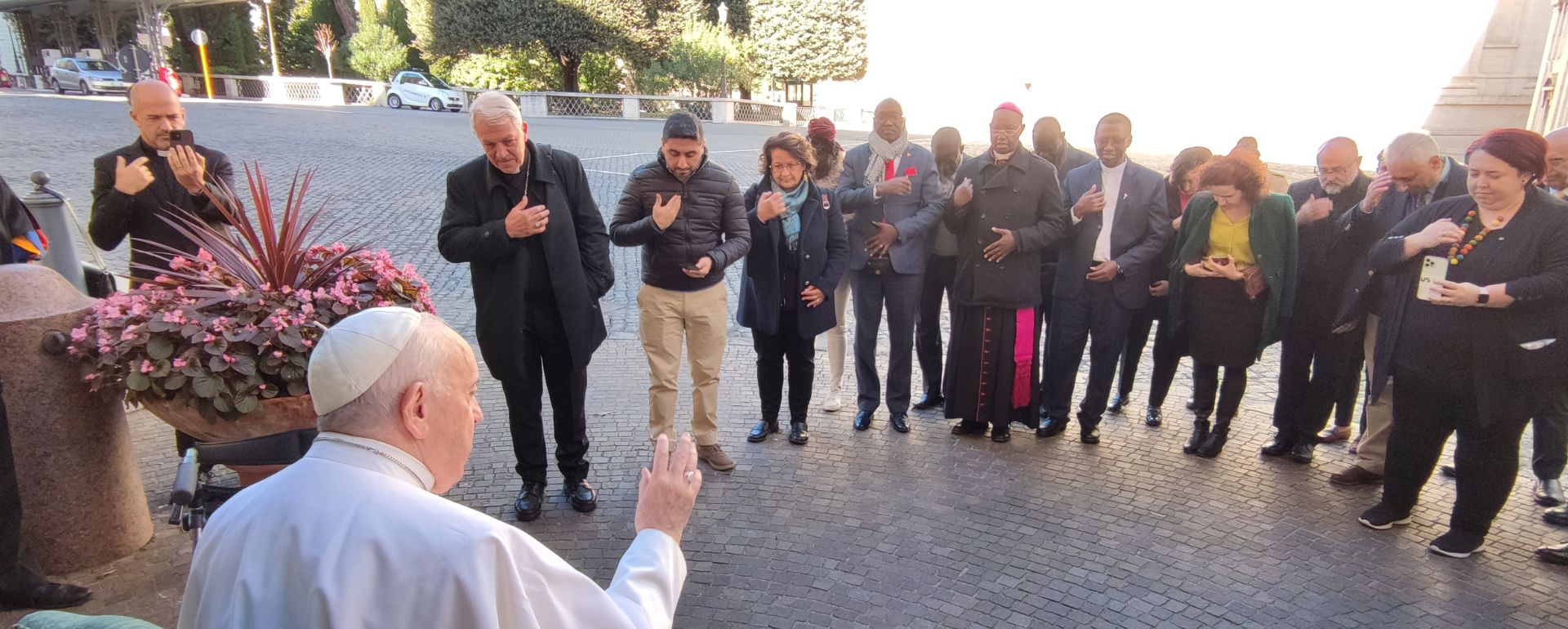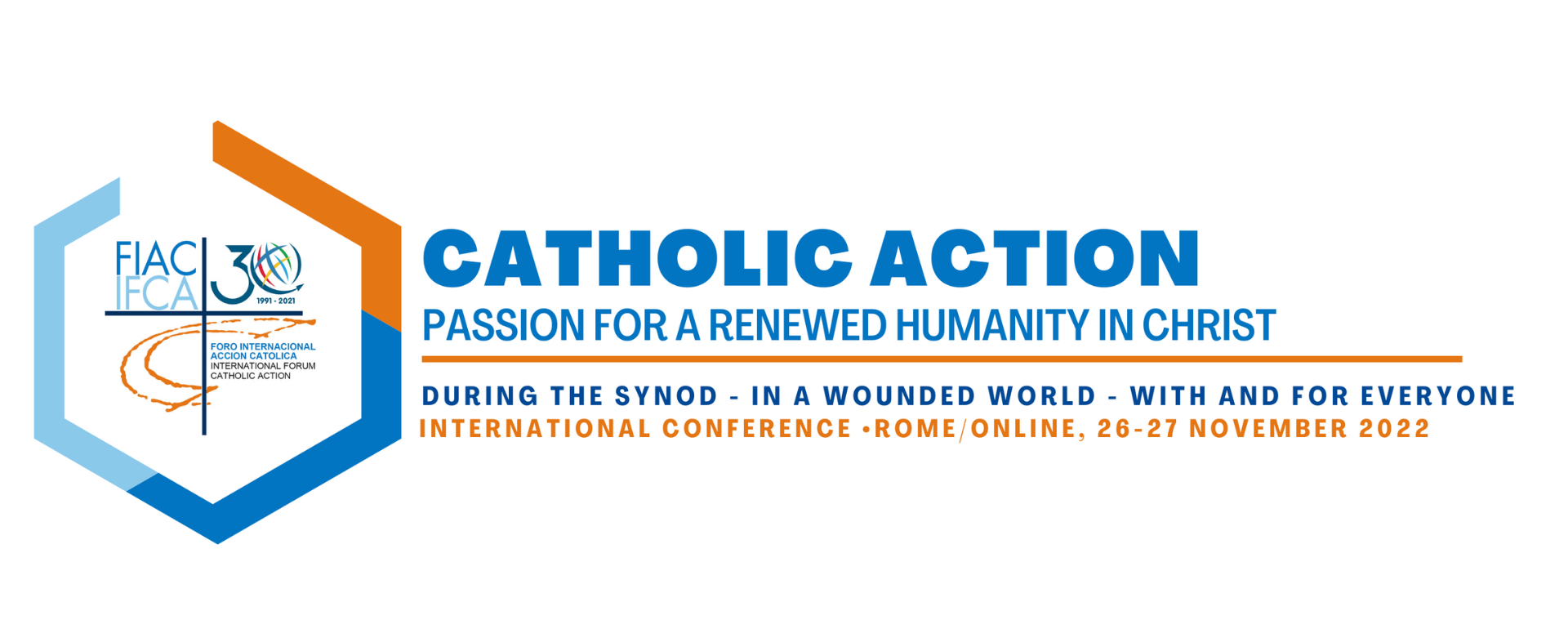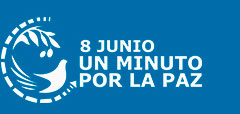Fratelli Tutti teaches us the profound transversal and humanising meaning of living together, which requires us to conjugate these words in order to live with dignity as persons in every context.
A commitment that every Christian community, especially through the laity, is called to take on concretely.
- Fraternity
- Dialogue
- Peace
- Friendship in society
************************
Fraternity
«Fratelli tutti», With these words, Saint Francis of Assisi addressed his brothers and sisters and proposed to them a way of life marked by the flavour of the Gospel. Of the counsels Francis offered, I would like to select the one in which he calls for a love that transcends the barriers of geography and distance, and declares blessed all those who love their brother “as much when he is far away from him as when he is with him”. In his simple and direct way, Saint Francis expressed the essence of a fraternal openness that allows us to acknowledge, appreciate and love each person, regardless of physical proximity, regardless of where he or she was born or lives. (FT 1)
It is my desire that, in this our time, by acknowledging the dignity of each human person, we can contribute to the rebirth of a universal aspiration to fraternity. Fraternity between all men and women. “Here we have a splendid secret that shows us how to dream and to turn our life into a wonderful adventure. No one can face life in isolation… We need a community that supports and helps us, in which we can help one another to keep looking ahead. How important it is to dream together… By ourselves, we risk seeing mirages, things that are not there. Dreams, on the other hand, are built together”. Let us dream, then, as a single human family, as fellow travelers sharing the same flesh, as children of the same earth which is our common home, each of us bringing the richness of his or her beliefs and convictions, each of us with his or her own voice, brothers and sisters all. (FT 8)
In a mutual and shared spirit of fraternity, all of us must work to promote a culture of peace that encourages sustainable development, tolerance, inclusion, mutual understanding and solidarity. We all live under the same heaven, independently of where and how we live, the colour of our skin, religion, social group, sex, age, economic conditions or our state of health. All of us are different yet equal, and this time of pandemic has shown that clearly. Let me say once again: we are not saved alone! (MESSAGE OF HIS HOLINESS POPE FRANCIS TO MARK THE SECOND INTERNATIONAL DAY OF HUMAN FRATERNITY)
Dialogue
Approaching, speaking, listening, looking at, coming to know and understand one another, and to find common ground: all these things are summed up in the one word “dialogue”. If we want to encounter and help one another, we have to dialogue. There is no need for me to stress the benefits of dialogue. I have only to think of what our world would be like without the patient dialogue of the many generous persons who keep families and communities together. Unlike disagreement and conflict, persistent and courageous dialogue does not make headlines, but quietly helps the world to live much better than we imagine. (FT 198)
Lack of dialogue means that in these individual sectors people are concerned not for the common good, but for the benefits of power or, at best, for ways to impose their own ideas. Round tables thus become mere negotiating sessions, in which individuals attempt to seize every possible advantage, rather than cooperating in the pursuit of the common good. The heroes of the future will be those who can break with this unhealthy mindset and determine respectfully to promote truthfulness, aside from personal interest. God willing, such heroes are quietly emerging, even now, in the midst of our society. (FT 202)
Do not forget this. Dialogue is the oxygen of peace. Even for peace in our homes. If there is war there between husband and wife, they can move ahead in peace, with dialogue. In the family, too, dialogue; dialogue, for peace is preserved through dialogue. (General Audience of 9 November 2022)
Peace
The Church proclaims “the Gospel of peace” (Eph 6:15) and she wishes to cooperate with all national and international authorities in safeguarding this immense universal good. By preaching Jesus Christ, who is himself peace (cf. Eph 2:14), the new evangelization calls on every baptized person to be a peacemaker and a credible witness to a reconciled life. In a culture which privileges dialogue as a form of encounter, it is time to devise a means for building consensus and agreement while seeking the goal of a just, responsive and inclusive society. The principal author, the historic subject of this process, is the people as a whole and their culture, and not a single class, minority, group or elite. We do not need plans drawn up by a few for the few, or an enlightened or outspoken minority which claims to speak for everyone. It is about agreeing to live together, a social and cultural pact. (EG 239)
God is peace. He guides us always in the way of peace, never that of war. Let us commit ourselves, then, even more to insisting on the need for resolving conflicts not by the inconclusive means of power, with arms and threats, but by the only means blessed by heaven and worthy of man: encounter, dialogue and patient negotiations, which make progress especially when they take into consideration the young and future generations. (APOSTOLIC JOURNEY OF HIS HOLINESS POPE FRANCIS to KAZAKHSTAN- 14 September 2022)
Friendship in society
Social peace demands hard work, craftsmanship. It would be easier to keep freedoms and differences in check with cleverness and a few resources. But such a peace would be superficial and fragile, not the fruit of a culture of encounter that brings enduring stability. Integrating differences is a much more difficult and slow process, yet it is the guarantee of a genuine and lasting peace. That peace is not achieved by recourse only to those who are pure and untainted, since “even people who can be considered questionable on account of their errors have something to offer which must not be overlooked”.[206] Nor does it come from ignoring social demands or quelling disturbances, since it is not “a consensus on paper or a transient peace for a contented minority”.[207] What is important is to create processes of encounter, processes that build a people that can accept differences. Let us arm our children with the weapons of dialogue! Let us teach them to fight the good fight of the culture of encounter! (FT 217)
In this way it becomes possible to build communion amid disagreement, but this can only be achieved by those great persons who are willing to go beyond the surface of the conflict and to see others in their deepest dignity. This requires acknowledging a principle indispensable to the building of friendship in society: namely, that unity is greater than conflict. Solidarity, in its deepest and most challenging sense, thus becomes a way of making history in a life setting where conflicts, tensions and oppositions can achieve a diversified and life-giving unity. This is not to opt for a kind of syncretism, or for the absorption of one into the other, but rather for a resolution which takes place on a higher plane and preserves what is valid and useful on both sides. (EG 228)








